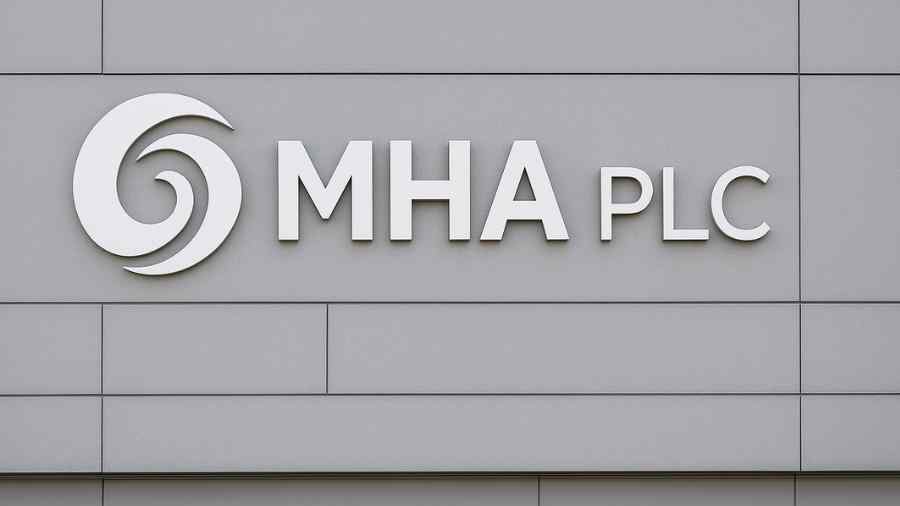
MHA PLC has swiftly emerged as one of the most dynamic and ambitious players in the United Kingdom’s professional and financial services industry. With a strategic vision rooted in modern governance, digital transformation, and global expansion, the company has positioned itself as a trusted name in audit, tax, and advisory services. Though relatively young in its corporate form, MHA’s legacy is deeply tied to decades of accounting excellence under the MHA brand, and its integration with the Baker Tilly International network has amplified its reach worldwide.
The transformation of MHA from a traditional partnership model into a publicly listed company has marked a new era for the firm. This bold move signifies not only a business transition but also a cultural evolution in the UK’s financial sector — one where transparency, accountability, and growth ambitions converge. In this article, we will explore MHA PLC’s journey, its business model, financial strength, governance framework, challenges, and the broader implications of its rise for the professional services industry.
Table of Contents
ToggleThe Origins and Evolution of MHA PLC
MHA’s story began with the unification of several leading regional accounting firms across the United Kingdom. Over time, these firms came together under one umbrella — MHA — to deliver seamless national coverage while retaining a strong local presence. Each constituent firm contributed its regional expertise, forming a collective capable of serving clients across industries, from manufacturing and healthcare to real estate, financial services, and technology.
In February 2025, MHA took a defining step by incorporating as MHA PLC, a publicly limited company registered in England and Wales. This incorporation marked its shift from a private professional partnership to a corporate entity capable of tapping public markets and broadening its investor base. The firm’s registered office, located in Milton Keynes, symbolises its central positioning within the UK’s financial geography — strategically accessible and business-focused.
This transition represents more than just a structural change. It reflects MHA’s desire to redefine what an accounting and advisory firm can be in the 21st century: technologically adept, internationally connected, and publicly accountable.
Business Model and Core Services
MHA PLC’s services encompass the full spectrum of financial and advisory solutions essential for modern businesses. Its operations are structured into key service lines:
1. Audit and Assurance
MHA’s audit practice forms the backbone of its business. The company provides independent assurance that helps organisations build trust with investors, regulators, and stakeholders. Its audit philosophy emphasises transparency, digital accuracy, and ethical standards, ensuring compliance with the UK’s evolving regulatory landscape.
2. Tax Advisory
With the UK’s taxation environment constantly shifting, MHA’s tax advisory division has become a vital partner for corporations and individuals. The firm’s experts assist with corporate tax planning, cross-border structuring, VAT, and personal taxation. By leveraging global insights from Baker Tilly International, MHA delivers innovative yet compliant tax solutions.
3. Business and Corporate Advisory
MHA’s advisory services extend to business transformation, mergers and acquisitions, valuation, and restructuring. The firm’s consultants provide strategic roadmaps that help companies optimise operations, manage risk, and unlock long-term value.
4. Outsourcing and Financial Management
Recognising the growing demand for outsourcing, MHA offers payroll, accounting, and financial management services that allow clients to focus on their core business functions while maintaining financial accuracy and compliance.
Financial Performance and Market Growth
Despite being newly listed, MHA PLC’s financial trajectory demonstrates rapid expansion. Its latest financial year reported revenues exceeding £220 million, supported by strong profitability and diversified service income. The company’s market capitalisation has been estimated at over £400 million, making it one of the most valuable mid-tier professional services firms in the UK.
This growth is fuelled by MHA’s dual strategy: consolidating its domestic market share and expanding internationally through the Baker Tilly network. By integrating advanced data analytics and automation into its processes, the firm has enhanced productivity and reduced operational overheads.
MHA’s focus on sustainable profitability — rather than short-term gains — differentiates it from competitors. Its leadership has maintained a balanced debt-to-equity ratio, demonstrating prudent financial management while pursuing expansion.
The Move Towards Public Listing
One of MHA PLC’s most talked-about decisions was its intention to go public on the London Stock Exchange’s AIM market. The company planned to raise approximately £125 million to fund acquisitions, invest in technology, and reward existing and retired partners.
This proposed listing marks a bold move within an industry traditionally dominated by private partnerships. Public ownership opens up opportunities for investment, employee equity participation, and long-term strategic flexibility. However, it also places MHA under greater scrutiny from shareholders and regulators, requiring higher levels of transparency and governance.
The listing is symbolic of a larger trend — the corporatisation of professional services firms — and positions MHA as a pioneer in redefining how accounting and advisory businesses can operate in a public market context.
Corporate Governance and Leadership
MHA’s governance framework reflects a blend of professional expertise and corporate oversight. The board comprises seasoned leaders from financial, regulatory, and commercial backgrounds.
-
Rakesh Shaunak, Chief Executive Officer, is recognised for his strategic vision and leadership in transforming MHA into a forward-thinking, technology-driven firm.
-
Steven Moore, Chief Financial Officer, plays a key role in strengthening MHA’s financial resilience and ensuring efficient capital allocation.
-
The company also benefits from the guidance of experienced non-executive directors, including Sir Robert Neill and Linda Jane Main, whose governance experience enhances board accountability.
This blend of operational and independent leadership ensures that MHA’s strategic direction aligns with both business objectives and shareholder expectations.
Technological Transformation and Digital Ambition
MHA PLC has embraced digital transformation at its core. By leveraging automation, artificial intelligence, and cloud-based data platforms, the firm has revolutionised how audits and advisory services are delivered.
Internally, MHA has modernised its workflow systems, enabling real-time collaboration across its offices. Externally, it offers clients advanced analytics tools to forecast financial outcomes, detect anomalies, and manage compliance risks.
This digital-first approach has enhanced the firm’s competitiveness in a sector increasingly shaped by data-driven decision-making. Moreover, MHA’s integration with Baker Tilly’s global technology initiatives ensures consistency and innovation across markets.
Regulatory Challenges and Reputation Management
No major player in the financial services sector is immune to regulatory scrutiny, and MHA PLC is no exception. The company has faced investigation by the UK’s Financial Reporting Council (FRC) concerning audits of certain corporate clients. While such inquiries are not unusual in the audit industry, they underscore the importance of maintaining rigorous quality controls.
MHA has responded by reinforcing its internal audit standards and investing in compliance training. The company’s proactive stance demonstrates its commitment to restoring and preserving public trust.
These developments highlight a broader challenge facing the audit profession — balancing commercial growth with ethical responsibility. For MHA, turning regulatory oversight into an opportunity for improvement may prove vital to its long-term credibility.
MHA PLC and the Baker Tilly Connection
MHA’s membership in Baker Tilly International, one of the world’s largest networks of independent accounting and advisory firms, is a cornerstone of its strength. This affiliation provides MHA with access to global expertise, resources, and clients while allowing it to remain independent in its local operations.
Through Baker Tilly, MHA serves multinational corporations seeking integrated cross-border solutions, particularly in tax, audit, and consulting. The relationship enhances MHA’s international profile and reinforces its credibility as a globally aligned yet locally rooted firm.
Social Responsibility and Sustainability
Beyond its commercial success, MHA PLC has also demonstrated a strong commitment to corporate social responsibility. The firm supports environmental sustainability, workplace diversity, and community engagement initiatives across the UK.
Its sustainability strategy aligns with the United Nations Sustainable Development Goals (SDGs), focusing on reducing carbon emissions, promoting inclusive employment, and supporting education and entrepreneurship.
By integrating sustainability into its business model, MHA positions itself as a socially responsible organisation that balances profit with purpose.
The Future of MHA PLC
The future outlook for MHA PLC is notably optimistic. As the company strengthens its brand reputation and expands its client base, it aims to become the UK’s fifth-largest accounting and advisory firm. Its commitment to technology adoption, global integration, and public accountability positions it well for sustained success.
However, the journey ahead will require careful navigation. The audit sector is undergoing reform, with regulators demanding higher transparency and ethical standards. MHA must continue to innovate while maintaining its professional integrity.
If executed effectively, MHA’s strategy could redefine the landscape of the UK’s mid-tier accounting firms, positioning it as a benchmark for modern, publicly accountable professional service providers.
Conclusion
MHA PLC stands at the forefront of a new era in British professional services — one defined by corporate structure, public accountability, and digital excellence. Its evolution from a network of regional firms into a publicly listed powerhouse encapsulates the transformation sweeping through the financial advisory world.
The company’s ambitious goals, strong leadership, and innovative approach signal that MHA PLC is not merely adapting to the changing marketplace but actively shaping it. As it continues to grow, strengthen governance, and expand globally, MHA PLC represents a new model for professional firms in the 21st century: transparent, technology-driven, and purpose-led.



